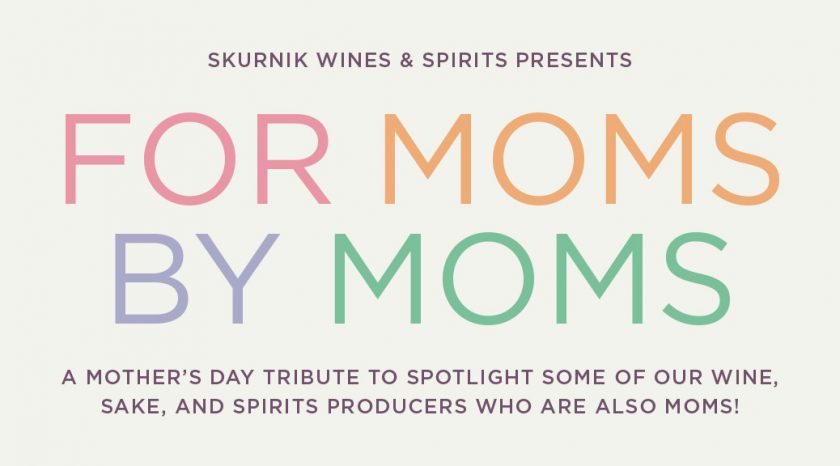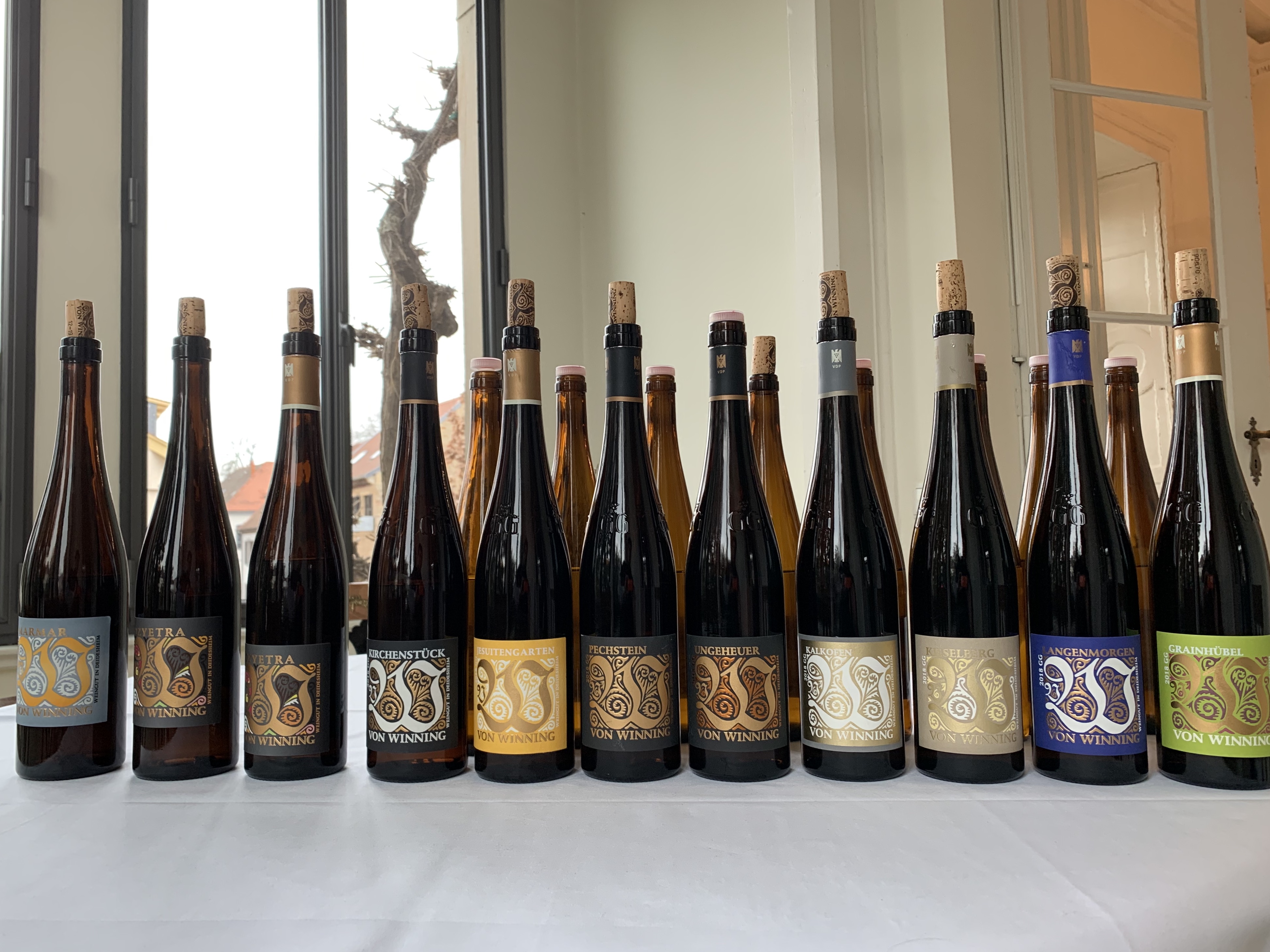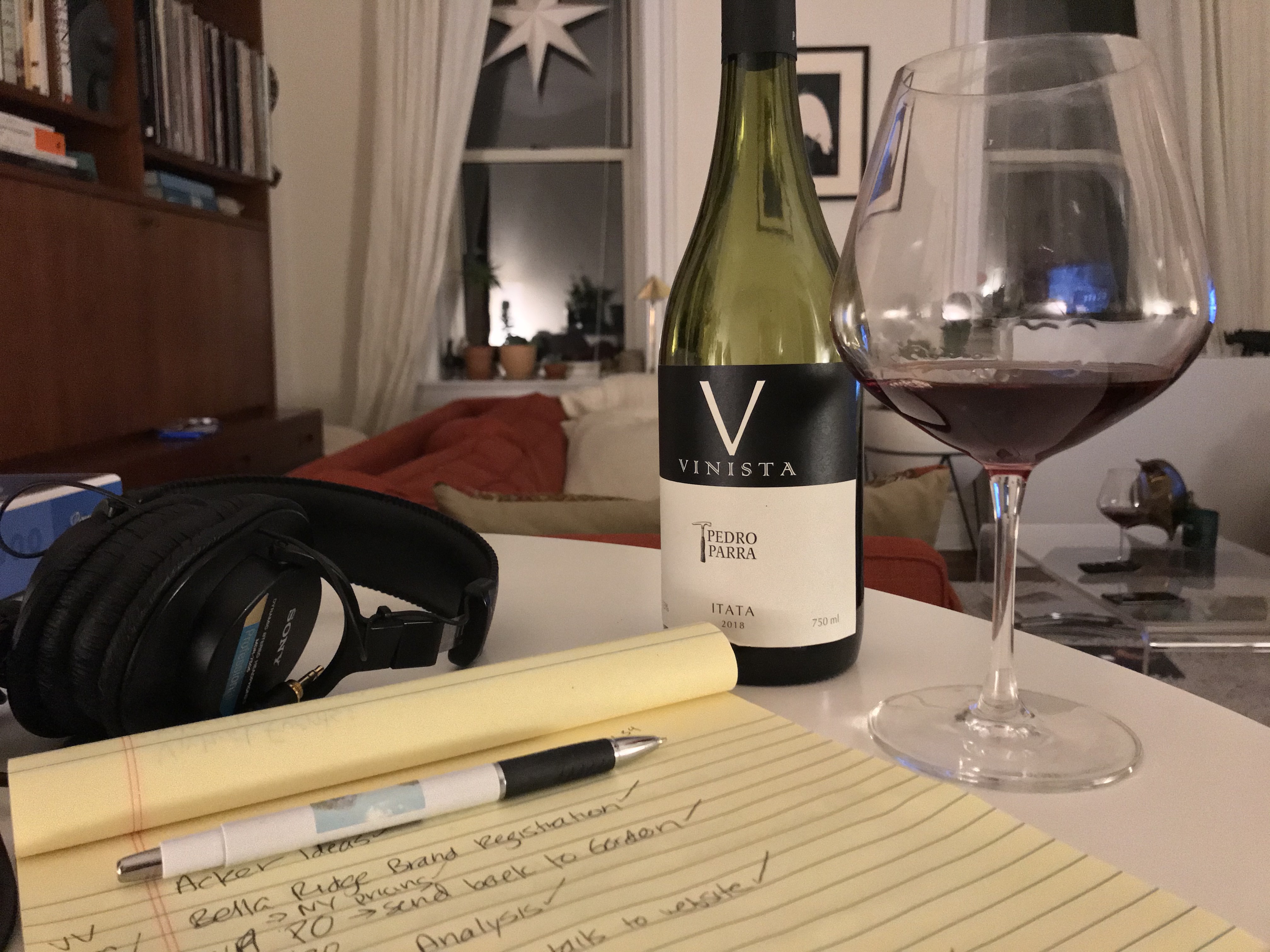While we do our best to celebrate the ones we love all year round, Mother’s Day remains a most treasured occasion to show appreciation to the maternal figures in our lives – our moms, our grandmothers, our stepmothers, our aunts, our cousins, our siblings, our guardians, our neighbors, our friends. Celebrating this holiday will be looking different this year for most of us, but near or far, now more than ever we appreciate the love and support that the caregivers in our lives share with us, and all of the hats that they wear in our homes, in our communities, and in all that they do.
We salute these sources of care and encouragement in our lives. We are inspired by all that they do, and today shine a spotlight on some of our producers that in addition to being recognized all over the world as incredible creators of wine, sake and spirits, are also known as moms. These selections are a few of our favorite highlights of the work that they do.
CHAMPAGNE BRUT, PAUL LAURENT
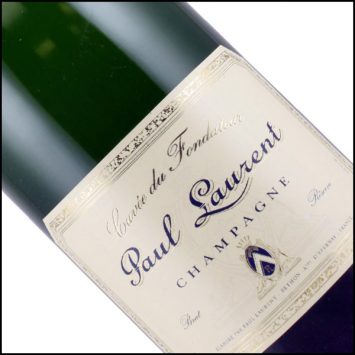
Sarah Larue runs this Champagne estate that dates to 1952, when Gilbert Gruet founded Champagne Gruet in the Val de Marne. In 1987, Gilbert decided to try something completely new and started a winery in America – where he eventually founded Gruet Winery in New Mexico.
His Champagne roots never left him though, and in 1993 he returned to the Val de Marne to make wine under the Paul Laurent name. Since then, Sarah has been leading the charge in continuing the domaine’s legacy of making balanced, mineral-driven Champagne
- 62% Pinot Noir, 28% Meunier, 10% Chardonnay
- Made from vines in the village of Bethon, just south of Epernay
- Fermented and aged in stainless steel
- Aged on the lees for 21 months
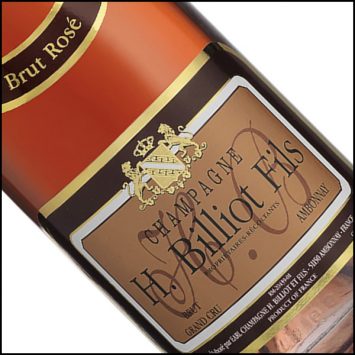
Laetitia Billiot took over her family’s estate in 2015. Farming just five hectares all in the Grand Cru of Ambonnay, Laetitia’s wines emphasize the bright, sunny character of this great village while maintaining depth and elegance.
Her rosé is one of our favorites, always red-fruited and plush with aromas of strawberries, a wonderful wine to pair with food or to drink on its own, this is about pure pleasure.
- 80% Pinot Noir, 20% Chardonnay
- All from Ambonnay Grand Cru
- Mostly from the 2016 vintage, with 20% 2015, 20% 2014 and 10% still Pinot Noir from 2016
- No malolactic to preserve the fresh, bright fruit character
- Raised in stainless steel, with the red wine aged in neutral oak
- 36 months on the lees
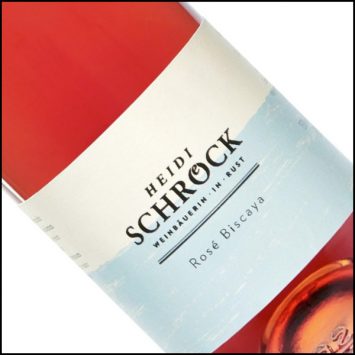
Heidi Schröck took over this small family domaine in Rust in 1983 and in her time has cemented it as one of the top wineries in Burgenland. Joined now by her twin sons as of 2019, the Schröck family is producing truly unique wines from both Austrian classics and international varieties.
The Rosé Biscaya is a wild blend of nine different grapes. Heidi calls it her “tour of European vineyards” as the blend includes grapes indigenous to Northern Italy, Burgundy, Bordeaux, the Rhône Valley, and, of course, Burgenland.
A much deeper and more structured style of rosé, named “Biscaya” for its resemblance to the color of lobster bisque, it is a rosé for those who want a bit more power and intensity than a traditional provençal style. Savory, spicy, and bursting with berries, wildflowers, and herbs.
- Blend of Lagrein, Teroldego, Petit Verdot, Syrah, Pinot Noir, Merlot, Cabernet Sauvignon, Zweigelt and Blaufränkisch
- From the Ried Ruster vineyard
- Soil is loamy sand with grey quartz and schist
- Fermented in acacia, oak, and stainless steel; racked, blended and left on the lees for 4 months
LINK TO HEIDI’S VIDEO ON MOTHER’S DAY ROSÉ!
SCHLOSSGUT DIEL, ROSÉ DE DEIL
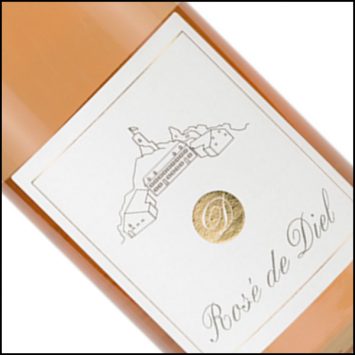
In 2006, after studying winemaking at Geisenheim (the top enology school in Germany) and staging at top estates around the world, including Domaine de la Romanée-Conti, Caroline Diel returned home to the family Domaine in Burg Layen to take over the estate.
As of 2012, she is the sole proprietor and winemaker of Schlossgut Diel in the Nahe. While Caroline produces stunning Rieslings, her Rosé de Diel is a cult favorite with expressive aromas of wild strawberry and raspberry, a spicy finish, and enduring elegance.
- 100% Spätburgunder
- From the Dorsheim and Burg Layen vineyards
- Slate, gravel and loam soils
- Stainless steel with a portion in aged neutral oak, a mix of large fuder.
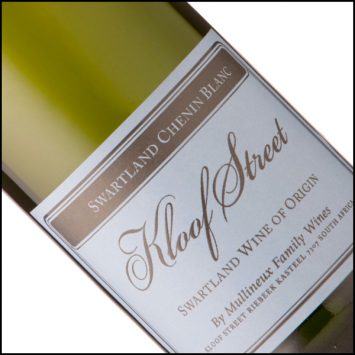
Envisioned as an entry point to the Swartland, California-born winemaker Andrea Mullineux and her viticulturalist husband Chris’s Kloof Street label focuses on Chenin Blanc and Rhône red varieties.
The Mullineux family devotes the same level of attention to these sustainably farmed values as their single vineyard and single terroir expressions that have won them considerable praise for the last decade both inside and outside South Africa.
- 100% Chenin Blanc from three sustainably farmed vineyard sites
- Majority of wine is fermented in stainless, while 15% sees barrel
- Hand-picked and fermented with native yeasts
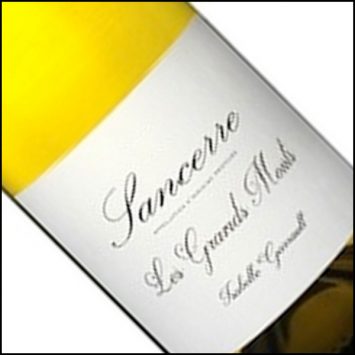
Isabelle Garrault is the 10th generation of her family to grow grapes and make wine in Sancerre. Based in the small hamlet of Verdigny, their parcels are all found in the picturesque hillside slopes that allow the grapes to soak up the shy Loire Valley sun.
The wines from these beautiful vineyards have the laser-intense minerality that is getting harder and harder to find in Sancerre. It is farmers like Isabelle who simply continue to make wine in the traditional way that reminds us why we fell in love with this hilly region to begin with.
- From vines in the village of Verdigny
- 100% Sauvignon Blanc
- 40+-year-old vines
- Grown on terres blanches and caillotes
- Indigenous yeast
- Fermented and aged in tank
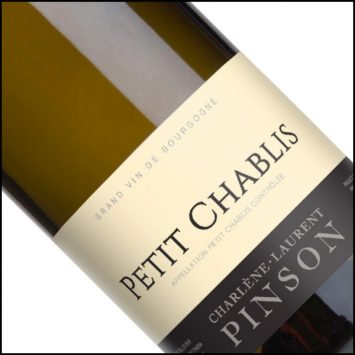
Domaine Pinson is one of the oldest estates in Chablis, with records showing the family in the region since 1640. The domaine today is run by the dynamic Charlène Pinson, who in recent years has been recognized as one of the top growers in this historic village. It’s easy to see why, as this Petit Chablis shimmers with soaring minerality and vivacity, making it a perfect and refreshing Chardonnay for all times of the year.
- 35+-year-old vines
- 100% Chardonnay
- Eastern exposure
- From vines above Grand Cru Les Clos
- Very rocky Portlandian terroir
- Indigenous yeast
- Fermented and aged in tank
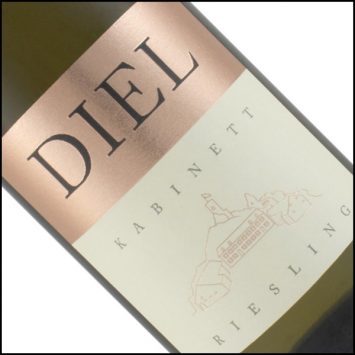
While Caroline Diel’s Grosses Gewachs wines are coveted by collectors all over, she still puts the same intention and focus on her Kabinetts. Sourced from Johannisberg and Doresheim, the wine is spontaneously fermented in stainless steel, showing a thirst-quenching balance of fruit and acidity.
Caroline likes wines that she calls “drinky” and the Diel Kabinett is exactly that.
- 100% Riesling
- Slate, gravel, & sandstone soil
- Spontaneously fermented and matured in stainless steel
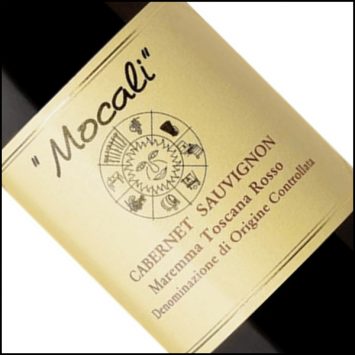
Dino Ciacci, the founder of the Mocali estate, was one of these 25 vignerons who, in 1967, founded the Corsorzio del Vino Brunello di Montalcino. Today, Alessandra and Tiziano farm 20 hectares in Montalcino. Their daughter, Pamela, has recently joined the business, and together they oversee all aspects of production.
Mocali has always followed a traditional style of winemaking, aging their Brunello classico in only large French and Slavonian oak casks, and the wine has found a following far beyond the borders of Italy.
- 100% Cabernet Sauvignon
- From Marl and sandstone soils of Maremma
- Alcoholic and malolactic fermentation in stainless steel tank and aging six months in barriques of 225 liters.




